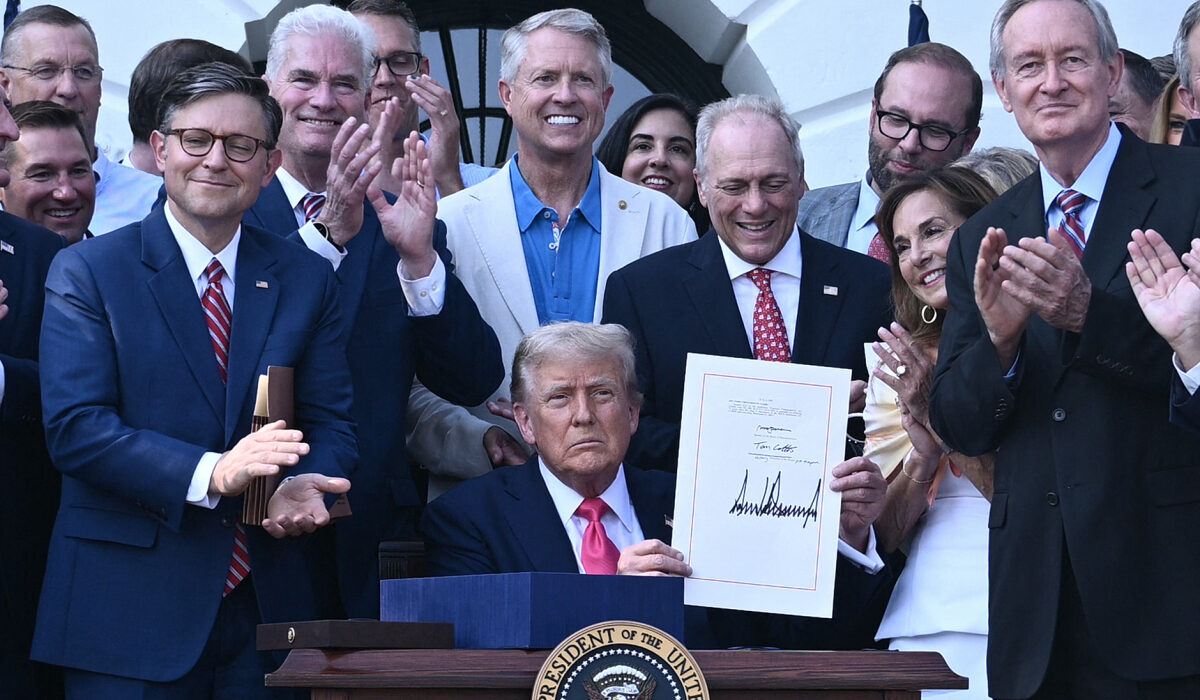As the world grapples with the pressing issue of climate change, the United States finds itself at a critical juncture, torn between environmental responsibility and economic interests. A recent development has sent shockwaves through the environmental community – President Trump’s decision to roll back incentives for electric vehicles and clean energy, along with a series of other regulatory changes, is projected to result in a staggering increase of 7 billion tons of CO2 emissions over the next five years. This stark deviation from the climate goals set during the Biden administration has raised concerns and sparked debates on the future of environmental policy in the country.
The impact of these policy shifts extends far beyond just numbers on a spreadsheet. The decision to revoke incentives for electric vehicles, a key driver in reducing carbon emissions, is seen as a significant setback in the fight against climate change. Electric vehicles have long been hailed as a crucial component in transitioning towards a greener transportation sector, offering a cleaner alternative to traditional gas-guzzling cars. By removing these incentives, the Trump administration has effectively hindered the growth of this vital industry, pushing the country further away from its emissions targets.
The rollback of environmental regulations and incentives not only threatens the progress made in reducing carbon emissions but also sends a dangerous message about the country’s stance on climate change.
Experts and environmentalists alike have voiced their concerns over the potential environmental repercussions of these policy changes. The projected increase of 7 billion tons of CO2 emissions is not just a statistical figure; it represents a significant regression in the country’s efforts to curb its carbon footprint. The ripple effects of this decision are expected to be felt on a global scale, impacting not only the environment but also public health and the economy.
“The reversal of environmental policies could have far-reaching consequences, jeopardizing not only our climate goals but also the well-being of future generations,” warned Dr. Emily Green, a leading environmental scientist.
The implications of this policy shift go beyond environmental concerns. The decision to prioritize economic interests over environmental sustainability reflects a broader trend observed in many countries grappling with the dual challenges of economic growth and environmental protection. The debate between economic development and environmental conservation is not a new one, but the current situation in the United States underscores the need for a balanced approach that considers both short-term gains and long-term consequences.
The clash between economic imperatives and environmental responsibilities highlights the complexities of policymaking in a world where the stakes have never been higher.
As the world looks towards the upcoming climate talks and policy decisions, the case of the United States serves as a stark reminder of the delicate balance that must be struck between progress and preservation. The repercussions of policy decisions made today will echo far into the future, shaping the world that future generations will inherit. The time to act is now, and the choices we make today will determine the course of our planet’s future.
In conclusion, the “Beautiful Law” enacted by President Trump may have far-reaching consequences that extend well beyond the political realm. It serves as a poignant example of the challenges faced in navigating the complex interplay between economic interests and environmental responsibilities. The path ahead is fraught with uncertainties, but one thing remains clear – the decisions made today will shape the world of tomorrow. It is up to us to choose wisely, for the sake of our planet and all who call it home.

